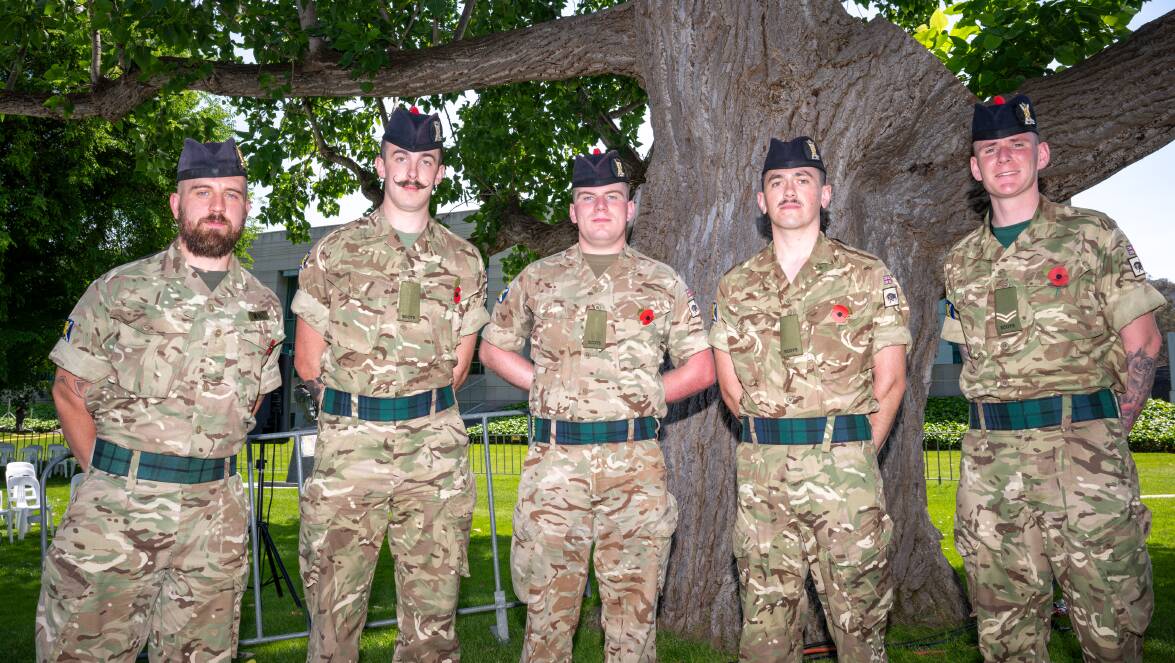Remembrance Day in the national capital held a special symbolism on Saturday as it marked the 30th anniversary of the interment of the unknown soldier at the Australian War Memorial in Canberra.
The Prime Minister at the time, Paul Keating, delivered a now-famous eulogy that day which brought a tear to many an eye.
"He [the Unknown Soldier] may have been one of those who thought the Great War would be an adventure too grand to miss," Mr Keating said at the time.
"He may have felt that he would never live down the shame of not going. The chances are he went for no other reason than that he believed it was his duty; a duty that he owed his country and his King."
Mr Keating described the Great War as a "mad, brutal, awful struggle distinguished more often than not by military and political incompetence" and how "the waste of human life was so terrible that some said victory was indiscernible from defeat".

And fittingly, he described how "nobility and grandeur belong not to empires and to nations, but to the people on whom they, in the last resort, always depend".
The Great War of 1914-18 took 60,000 Australian lives from the 416,000 who volunteered for service in that European war. From a national population at the time of just five million people, it was a horrific price to pay.
In the Remembrance Day address on Saturday, Lieutenant General Natasha Fox, the Chief of Army Personnel reflected on what service means and how it "feels differently to all of us in the armed services".
"It is more than a job," she said. "It is about supporting and lifting others, it is about providing hope.
"The consequences of, and sacrifices for, service are a legacy of war.

"They are the enduring burden experienced by our people. It is the loss of life, the grief endured, the absences experienced and the loss of time together, that impacts us all."
Remembrance Day, or Armistice Day as it is also known, is always marked by a minute's silence on the 11th hour of the 11th day of the 11th month of the year, as the guns fell silent on the Western Front after four years of continuous warfare.

The number of people killed in the conflict - civilians and soldiers alike - still remains unknown, but estimated at between nine and 13 million.
Hundreds of soldiers, diplomats, politicians, veterans and their families paid their respects at the memorial on Remembrance Day.
Among them was a group of pipers and drummers from the Royal Regiment of Scotland, based in Fort George, Inverness. None had been to Australia before and were visiting as guests of the British High Commission.
Around the world, Remembrance Day is commonly shared ritual among the Commonwealth countries that fought in the Great War. In other countries such as Belgium and France, it is national holiday while in the US, November 11 is recognised as Veterans Day.

Poppies have long been symbolic of the occasion.
A Canadian doctor Lieutenant Colonel John McCrae treated hundreds of soldiers involved in some of the heaviest fighting of the Great War, during the Second Battle of Ypres in April 1915. The area was also known as Flanders, and it was where there was the first recorded use of chlorine gas in trench warfare.
McRae lost a close friend at Ypres, the soldier buried in a makeshift grave with a rough wooden cross. A day later McRae penned the poem "In Flanders Fields", about the poppies growing in the battlefields. He died less than two years later of pneumonia and meningitis.
We've made it a whole lot easier for you to have your say. Our new comment platform requires only one log-in to access articles and to join the discussion on The Canberra Times website. Find out how to register so you can enjoy civil, friendly and engaging discussions. See our moderation policy here.







